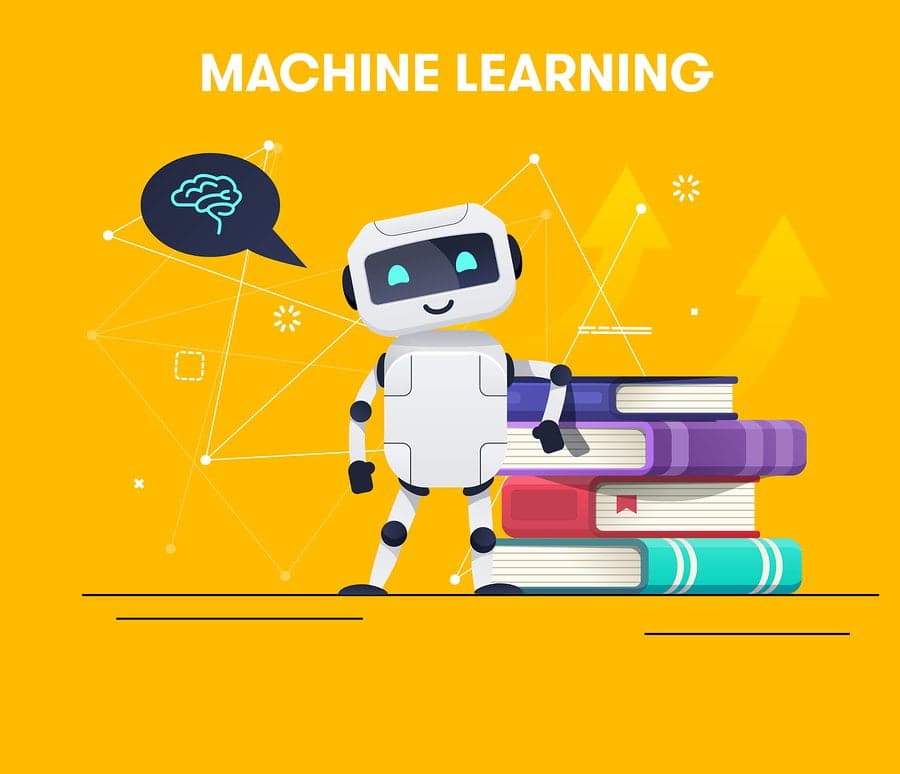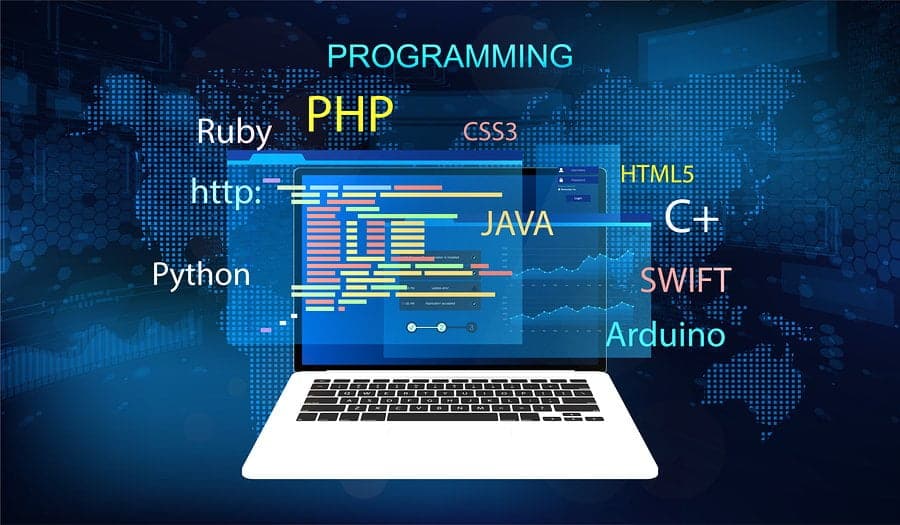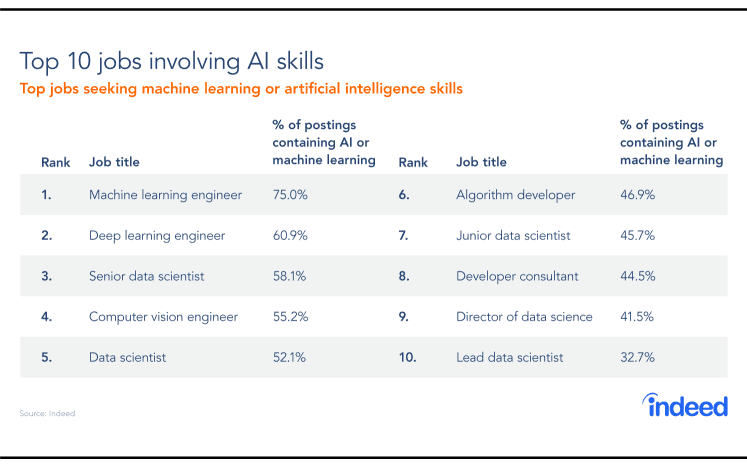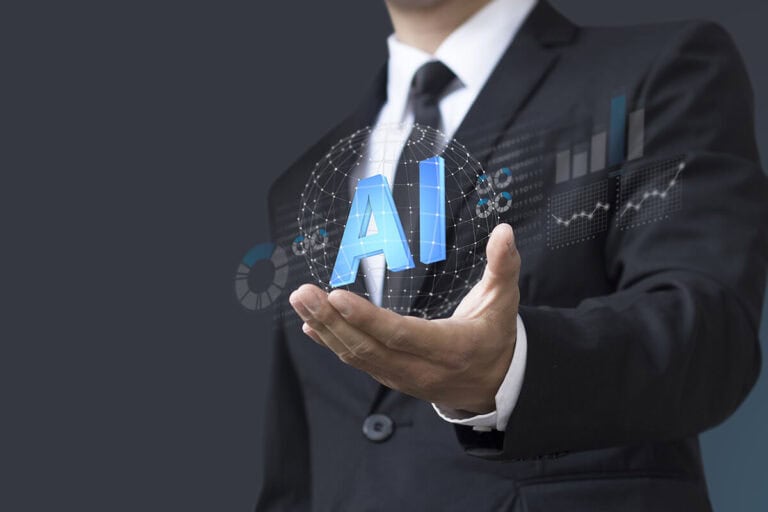Research conducted by Gartner suggests that artificial intelligence or AI will create a business value of US $3.9 trillion by 2022. What’s more, artificial intelligence is expected to be the most disruptive technology category for the next decade, due to advances in computing power, capacity, speed, and data diversity, along with the further evolution of deep neural networks (DNN). This growth is fueling a demand for talent in a number of related disciplines, including that of artificial intelligence engineering.
Table of Contents
ToggleBut what is artificial intelligence engineering? Before answering that question, it’s worth stepping back a little, to look at the evolution of artificial intelligence itself, and how it is enabling new ways of doing things that new require new skill sets to implement.
A Look at Artificial Intelligence (AI)
In simple terms, artificial intelligence is behavior or activity exhibited by machines and systems, which is similar to that of human beings. In the case of a computer system, its artificially intelligent ability to mimic human behavior stems from its collection and analysis of past activities and data.
With each new piece of information, the machine can make corrections to itself, so that previous errors won’t resurface, and make any necessary adjustments to itself, for handling new inputs. This approach enables AI systems to perform tasks that normally require human intelligence, such as visual perception, speech recognition, decision-making, and translation between different languages.
The realization of the AI concept has its roots in the 20th century, with the discovery of the first “Artificial Neurons” by McCullough and Pitts in 1943. SNARL, the first Neuron-based network computer, was constructed in 1950, by two Harvard undergraduates named Marvin Minsky and Dean Edmonds.

(Image source: Twitter.com)
The technology evolved via a sequence of peaks and lulls over the next few decades until a resurgence of interest in AI fueled its more sustained development from the mid-1980s to the present.
The Artificial Intelligence Ecosystem
AI represents an attempt by the people who produce it to exploit the electronic, digital, or mechanical advantages that technology has over the humans who own or operate it. This could be in terms of speed (physical reactions or computation), strength, a capacity for constant and repetitive actions, or an ability to withstand environments that would otherwise be harmful or hazardous to human health.

A number of complementary technologies are typically associated with AI in achieving these ends. Machine learning (ML) is a branch of artificial intelligence that uses statistical techniques and complex mathematical formulas to enable computers to learn from historical and current data. A subsidiary of machine learning that deals specifically with algorithms that mimic the structure and functions of the human brain is known as deep learning. Natural language processing (NLP) is a computing arm of artificial intelligence that uses speech recognition and other techniques to facilitate interactions between human beings and machines.
When combined with data analysis, AI and ML facilitate predictive analytics – a technique that can provide forecasts for strategic purposes such as business planning, or for practical applications like preventative maintenance. Embedded within software, these technologies can give rise to expert systems, which assist practitioners in fields like the medical sector, geological exploration, and military applications.
What Is Artificial Intelligence Engineering?
In essence, artificial intelligence engineering is the use of algorithms, computer programming, neural networks, and other technologies in the development of AI applications and techniques. These techniques and applications will typically have practical uses in commerce, science, and other aspects of life.
An artificial intelligence engineer must, therefore, be able to extract data efficiently from a variety of sources, design algorithms, build and test machine learning models, then deploy those models to create AI-powered applications capable of performing complex tasks.
Educational Requirements
In terms of formal education, a bachelor’s degree is usually the essential first step on the road to becoming an artificial intelligence engineer. Subjects that provide a good foundation for this career path include computer science, mathematics, information technology, statistics, finance, and economics.
More specialized subjects such as data science, machine learning, and natural language processing are available to AI engineering candidates as certificate programs from universities, coding schools, and other educational institutions at the undergraduate level. Industry certifications for machine learning, deep learning, or data science are also an option.

As we’ll see, computer programming is a vital element of the AI engineering remit, and formal training in languages such as Python, Django, JavaScript, CSS, HTML 5, Numpy, and others in the artificial intelligence and data analytics arena is a definite plus.
At the post-graduate level, a master’s degree in computer science, mathematics, cognitive science, or data science can prepare candidates for the more technical aspects of artificial intelligence engineering. Formal business qualifications can assist in preparing prospective AI engineers for the strategic and commercial aspects of working in the industry.
Skills Required for AI Engineering
The abilities that an artificial intelligence engineer requires to do his/her job effectively fall into three broad categories: technical skills, business skills, and soft skills.
Technical Skills
To work with algorithms, machine learning, neural networks, and other AI-related technologies, an artificial intelligence engineer must be good at programming and have a thorough understanding of the software development lifecycle, coding techniques, and best practices.
Programming languages such as Python, R, Java, and C++ are necessary for the construction and implementation of AI models. Knowledge of at least one of the major AI programming languages is a must, and familiarity with several of the key languages provides AI engineers with the option of choosing the best tools for each particular assignment. Python, for example, finds applications in general AI, machine learning, natural language processing, and deep learning. R is one of the most widely used programming languages in artificial intelligence and typically supports deep learning applications. It is also a tool in vector computation, functional programming, and object-oriented programming.

Mathematical skills in linear algebra, probability, and statistics enable artificial intelligence engineers to understand and implement different AI models such as Hidden Markov, Naive Bayes, Gaussian mixture models, and linear discriminant analysis. An understanding of machine learning algorithms like linear regression, KNN, Naive Bayes, and Support Vector Machine – which are themselves complex mathematical formulas – enables AI engineers to develop and implement ML models. Similarly, a knowledge of deep learning algorithms and the various kinds of neural networks (convolutional, recurrent, etc.) provides AI engineers with the skills necessary to build AI models with unstructured data.
Streaming or real-time production data in volumes of terabytes or petabytes make up the environment for much of the artificial intelligence engineering work that’s done in industry. AI engineers, therefore, require some knowledge of big data technologies such as Apache Spark, Hadoop, Cassandra, and MongoDB.
For projects that require hardware integration to increase speed, AI engineers should have some familiarity with classes, memory management, and linking, in addition to their mastery of the basic algorithms.
In natural language processing, AI engineers must combine computer science, information engineering, linguistics, and artificial intelligence, while programming systems to process and analyze large data sets. To do this, the AI engineer must be able to understand and manipulate the various language, audio, and video libraries and tools that facilitate NLP, such as NTLK, Sentiment Analytics, Gensim, TextBlob, and CoreNLP. An understanding of neural networks is also necessary, as these provide the key to effective translation, speech recognition, and image classification.
A knack for rapid prototyping and A/B testing gives artificial intelligence engineers an advantage in quickly iterating on various ideas and deciding on the one that works best. This skill has a number of applications within the field of AI, which range from selecting the right machine learning model for a given task, through fabricating a scale model of a physical part or assembly, to using three-dimensional computer models in design projects.
Business Skills
In the commercial arena, the artificial intelligence engineer’s understanding of how the process of machine learning can adapt to support various business processes is the starting point from which technical skills become valuable to the enterprise. By deciding when a machine learning model is ready for deployment and monitoring its accuracy over time, the AI engineer can govern its performance and judge when it needs to be retrained or replaced. In this way, AI engineers can quickly add machine learning capabilities to existing business resources such as enterprise resource planning (ERP) or customer relationship management (CRM) systems.

Of course, to create true value for the enterprise, artificial intelligence engineering must go beyond the purely technical to provide applications specific and relevant to the business. This requires AI engineers to have an understanding of how the core business runs, who the customers are, and the conditions of the market and operating environment. This kind of understanding enables artificial intelligence engineers to successfully translate their technical ideas into practical and efficient business models.
Soft Skills
The so-called “soft skills” like communication and the ability to collaborate well with others are now something of a prerequisite for anyone working in the digital economy. Artificial intelligence engineering is no exception.
Knowledge about their industry, the ability to think creatively, and an analytical approach to problem-solving can enable AI engineers to develop innovative and appropriate solutions to the problems facing the enterprise. They must then be able to communicate these ideas effectively to all relevant stakeholders within or outside the organization, using language and visualizations that everyone can understand.
Artificial intelligence engineers must then also be able to work in concert with key stakeholders and business units to implement their AI solutions with the minimum of friction, and with maximum effect.
The Responsibilities of an Artificial Intelligence Engineer
Broadly speaking, the AI engineer must take responsibility for the design, implementation, and management of machine learning algorithms and artificial intelligence tools throughout the organization. To integrate these systems across the enterprise, artificial intelligence engineers must be able to overcome the unique design challenges that result from combining the logic of traditional business applications with the learned logic of machine learning models.
This remit requires the AI engineer first to build AI and ML models, and then convert the machine learning models into application program interfaces (APIs) so that other applications can use them. AI engineers must then assist the various stakeholders of an organization to understand the output yielded by these models and the insights and benefits that they can gain from the results.
Underlying this artificial intelligence engineering environment is a data ingestion and data transformation infrastructure, which the AI engineer must also construct. Other infrastructure responsibilities include the setting up and management of an AI development and product infrastructure and the automation of the infrastructure used by an organization’s data science team.
In their role as general overseers of the organization’s AI deployment, artificial intelligence engineers must also perform statistical analysis and fine-tune the results from their various models, so that business planners can make better-informed decisions. This requires a degree of collaboration, communication, and coordination with other stakeholders in the enterprise.
The Role of AI Engineering in Business
As we’ve already observed, AI engineers can quickly add machine learning capabilities to business-critical systems such as enterprise resource planning (ERP), customer relationship management (CRM), and mobile device management (MDM). They can also develop business applications incorporating artificial intelligence from scratch.
Artificial intelligence engineering is enabling organizations to create hybrid operating environments that combine data science, data engineering, and software development. Successful AI projects will deliver value to the enterprise and address the relevant pain points of the business – be they internal, or those relating to customer affairs, supply chains, or other external factors. AI engineers are in the position to decide on which projects will benefit most from weak or strong artificial intelligence.
Depending on the industry, artificial intelligence engineers also act in conjunction with other AI and IT professionals, to facilitate the work of data management and process automation within the enterprise. For example, in manufacturing, AI developers work closely with electrical engineers to develop software that creates artificially intelligent robots. In retail and other sectors, AI engineers develop machine learning models and collaborate with data scientists in managing large and complex data sets that enable predictive analytics. And at a strategic level, business intelligence (BI) developers design, model, and analyze complex data to identify industry patterns and market trends.
Prospects and Opportunities for AI Engineers
These are promising times for artificial intelligence engineering. In its annual list of Emerging Jobs published in December 2019, social media platform LinkedIn rates the post of artificial intelligence specialist at number one. This role described as “typically an engineer, researcher or another specialty that focuses on machine learning and artificial intelligence” now commands an average annual wage of $140,000. And hiring for this role has been growing at 74% annually over the past four years.

(Image source: Indeed.com)
Similarly, Indeed’s annual list of the “25 best jobs of 2019” named machine learning engineer as number one, citing a 344% increase in job postings in the past few years, and an annual base salary of $146,000. Roles for artificial intelligence engineers are being created in a range of sectors, from the technology and automotive industries to higher education and sports.
For in-house talent, an organization’s top software engineers can transition to an artificial intelligence engineering role most easily, as they are likely to possess a comprehensive background in application development, and have experience with embedding machine learning algorithms into the software.
Some of the high demand for AI engineers will be met by higher education institutions, whose graduates can provide the desired mix of programming experience, mathematical knowledge, and statistical skills. Candidates who choose machine learning as their preferred elective will be at an advantage in making the transition to artificial intelligence engineering.
Final Thoughts
As real-time analytics and human-like reasoning become increasingly important across a number of industries, and the underlying technology continues to mature, the demand for artificial intelligence engineering talent will likely increase in the coming years. However, while this demand currently outstrips supply, this may change over the coming decade as more and more organizations launch programs to upskill existing employees, universities start offering more courses, and more self-motivated individuals begin the self-learning process to gain an advantage over other candidates. If artificial intelligence engineering is a career path you would like to pursue, the time is now to access the education and acquire the necessary skills, for indeed, AI is set to create some of the most exciting job opportunities available in the very near future.
Summary:
Artificial Intelligence Engineering
Research conducted by Gartner suggests that artificial intelligence or AI will create a business value of US $3.9 trillion by 2022. What’s more, artificial intelligence is expected to be the most disruptive technology category for the next decade, due to advances in computing power, capacity, speed, and data diversity, along with the further evolution of deep neural networks (DNN). This growth is fueling a demand for talent in a number of related disciplines, including that of artificial intelligence engineering.In essence, artificial intelligence engineering is the use of algorithms, computer programming, neural networks, and other technologies in the development of AI applications and techniques. These techniques and applications will typically have practical uses in commerce, science, and other aspects of life. An artificial intelligence engineer must, therefore, be able to extract data efficiently from a variety of sources, design algorithms, build and test machine learning models, then deploy those models to create AI-powered applications capable of performing complex tasks. In terms of formal education, a bachelor’s degree is usually the essential first step on the road to becoming an artificial intelligence engineer. The abilities that an artificial intelligence engineer requires to do his/her job effectively fall into three broad categories: technical skills, business skills, and soft skills.




